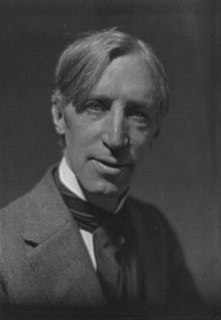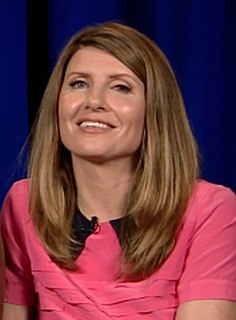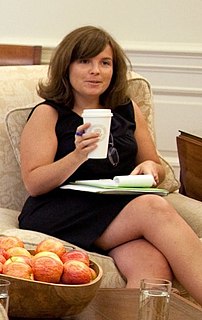A Quote by Terry Teachout
Blogging has mostly been an opportunity to react more immediately to experiences to try out ideas that I may end up using in the print media or in some other place. When I write books, it's a way for me to bring readers into the experience of writing the book, all through the process of writing the books that I write. I talk about what I'm up to in the blog. I let people know what I am doing. To me, it's just part of putting my professional life up in a way that people who are interested in it can access; and learning things from them as well.
Quote Topics
About
Access
Am
Been
Blog
Blogging
Book
Books
Bring
Doing
End
Experience
Experiences
Ideas
Immediately
Interested
Just
Know
Learning
Life
May
Me
Media
More
Mostly
Opportunity
Other
Out
Part
People
Place
Print
Print Media
Process
Professional
Professional Life
Putting
React
Readers
Some
Talk
Them
Things
Through
Try
Up
Using
Way
Well
Write
Writing
Related Quotes
My fear is you have to be careful as a writer to not get caught up in social media and blogging, because it can start to feed into your writing time. When you are writing a book, it's such a long journey where the payoff is way at the end, sometimes years away. The payoff of the blog post is today. You get the reinforcement, comments or "likes" immediately. It's appealing. You have to be patient with the book.
The young adult literature is relatively new - it just kind of exploded in the 2000s. When I grew up, there weren't bookstores with sections dedicated to teen lit, nor was my generation raised reading books written specifically for us. Because of that, today we still think of books for teens as children's books and so when you write a book that includes sensitive topics, it just seems even more controversial. What's troubling to me about that is these are issues adults know that teens deal with. Not writing about them makes them something we don't, or can't talk about.
Writing books isn't a drastic departure from writing for the stage. I've always written in the long format, five, eight, 10-minute pieces rather than one-liners, so since writing books, the process hasn't changed much. A piece in my live routine can end up as part of one of my HBO specials, and it can also end up in one of the books.
You've got to be a good reader. So whatever genre that you're interested in, read a lot of books about it and it's better than any kind of writing class you'll ever take. You will absorb techniques and then in a lot of cases you can just start writing using the style of the book or the author that you admire and then your own style will emerge out of that. Be a diligent reader and then try to write seriously, professionally and approach everything in writing in a professional way.
I am through generalizing about ideas apart from men who generate them. I am through writing books about the dead, or writing books about the living to the unborn (tucked away as Literature) or writing books about the unborn to the living (whiffed away as prophecy). I put up my life on advertising the living to the living, on making men of genius known to the people and interpreted to their time, that the time in which I live, may live face to face with its men of vision and that they may live face to face with one another.
The secret to writing is writing. Lots of people I know talk about writing. They will tell me about the book they are going to write, or are thinking about writing, or may write some day in the future. And I know they will never do it. If someone is serious about writing, then they will sit down every day and put some words down on paper.
I think that if you look at all of the books that have ever been written about people working in the White House, they're sort of the opposite of my book. And I think that so many people want to write a book that sort of memorializes their place in history. And I wanted to write something for all of the women who are like me. I grew up in upstate New York, I graduated high school with 70 other people and didn't ever know that anything like this would have really been an option for me. So I wanted other young women — and men — to know that just being you is plenty.
To the question of writing at all we have sometimes been counselled to forget it, or rather the writing of books. What is required, we are told, is plays and films. Books are out of date! The book is dead, long live television! One question which is not even raised let alone considered is: Who will write the drama and film scripts when the generation that can read and write has been used up?
I made up my mind long ago to follow one cardinal rule in all my writing-to be clear. I have given up all thought of writing poetically or symbolically or experimentally, or in any of the other modes that might (if I were good enough) get me a Pulitzer prize. I would write merely clearly and in this way establish a warm relationship between myself and my readers, and the professional critics-Well, they can do whatever they wish.
When I'm really plugged in I find it difficult to write. It's like digging a well. If you make a void, something moves in to fill it. Writing books is like that. It's mostly about freeing up time, doing nothing, and in that time some writing starts to happen. We need to figure out how to maintain those voids.
The process for writing a picture book is completely different from the process of writing a chapter book or novel. For one thing, most of my picture books rhyme. Also, when I write a picture book I'm always thinking about the role the pictures will play in the telling of the story. It can take me several months to write a picture book, but it takes me several years to write a novel.




































